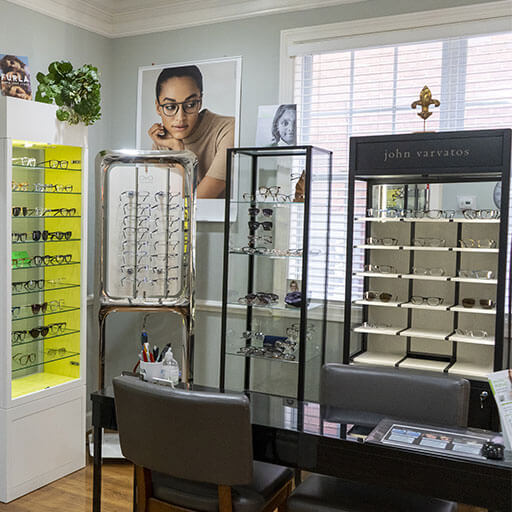







Advanced Technology
Advanced Technology
Since early diagnosis and monitoring are such important parts of glaucoma management, we make sure our expert team always has the best technology available. We use optical coherence tomography to help us see the inside of your eye and check for any signs of glaucoma — even if you haven’t experienced symptoms. We also use our tonometer to check your eye’s pressure during every visit to make sure your optic nerve is in the clear.
Custom Management Plans
Custom Management Plans
Our doctors gear your glaucoma treatment specifically to you, so your sight remains clear for years to come. We use the information we gather about your work, hobbies, and vision needs to tailor your care for the best outcomes. And to help keep your IOP in a healthy range, we’ll even give you nutrition and exercise recommendations to help you fight glaucoma’s progression.
Surgical Co-Management
Surgical Co-Management
After a thorough analysis, we may determine that surgery is the best solution for your case of glaucoma, and we’ll be happy to refer you to a specialist. Whether you need minimally invasive glaucoma surgery (MIGS), a trabeculectomy, or an implant, we’ll work with the area’s top ophthalmologists to ensure your procedure is tailored to your needs and you recover smoothly.




Testimonials
FAQ’s
What Causes Glaucoma?
Glaucoma can be caused by various factors, such as increased intraocular pressure (IOP), a family history of the condition, age, medical conditions like diabetes and high blood pressure, and certain medications. However, the exact cause of glaucoma is still not fully understood.
Can Glaucoma Be Cured?
Currently, there is no known cure for glaucoma. Early detection and appropriate treatment can help slow down the progression of the disease, preserve remaining vision, and prevent further damage. Treatment options include eye drops, medications, laser therapy, and surgery to manage intraocular pressure (IOP) and preserve vision.
How Many Types of Glaucoma Are There?
There are several types of glaucoma, but the two main types are primary open-angle glaucoma (POAG), the most common form, and angle-closure glaucoma, the second most common type.
